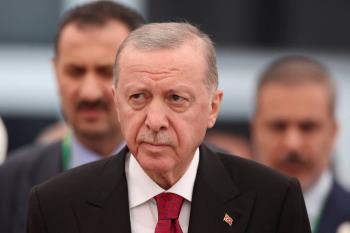Alwaght- As Turkey steps up its regional activism, it also increases its Libya role in North Africa. What calls attention about Turkey’s Libya role is the possibility of setting up a military base in Libya.
Establishing a Turkish military base in Libya
The Turkish newspaper Habarturk has reported that the foundation of Turkey’s military base in the Libyan capital Tripoli will unveil the new aspects of Ankara’s relations with its allies and rivals. The newspaper added that Turkey has completed the initial assessments to construct a military base in Tripoli, the seat of the Government of National Accord (GNA) which is supported by Ankara.
A Turkish journalist said that Faiz al-Siraj, the prime minister of the GNA, on Monday met with the Turkish President Recep Tayyip Erdogan in Istanbul, the second such meeting in three weeks. He is reportedly going to ask the Turkish leader on February 20 next year to send Turkish forces to Libya. Informed sources suggest that this date can change with regard to the fast-moving developments in Libya.
Turkey’s Yeni Safak newspaper said that the Turkish armed forces are “prepared to offer help to the legitimate Government of National Accord” in the capital against a months-long offensive to wrest Tripoli launched by General Khalifa Haftar.
The newspaper added that Turkey has already started sending armored vehicles, drones, and special forces to Tripoli. Furthermore, aerial refueling tankers and choppers are ready to be deployed to the country through Misrata airport, controlled by forces loyal to the GNA.
Meanwhile, Erdogan noted that the maritime pact Turkey signed with the GNA on the sovereignty in the Mediterranean Sea will transform the situation caused by the Treaty of Sevres signed in 1920 between the Ottoman Empire and its allies, mainly in the Arab world and North Africa. Erdogan noted that Turkey was ready to send forces to Libya if the Libyan government asked, adding that the security and military cooperation with the government of al-Siraj will go into effect when the Turkish parliament approves it.
Putin and Erdogan negotiate Libya
The Turkish and Russian leaders are scheduled to discuss the status of the Libyan crisis next month. On Tuesday, Kremlin released a statement saying that next month Turkey’s Erdogan and Russia’s Vladimir Putin will discuss Ankara’s plan to militarily support the Libyan government. Dmitry Peskov, Kremlin’s spokesman, told the media that Russia will support any efforts by other countries to find a solution to the crisis in Libya.
Turkey and Russia compete in Libya
The war continues in Libya in the skies and on the ground, as the global and regional powers press to save their influence or promote it in the North African country to take advantage of its energy resources, mainly oil.
Qassan Salama, the United Nations special envoy to Libya’s conflict, held that clashes in Tripoli suburbs over the past few days have moved to the urban areas. The forces loyal to General Haftar, called the Libyan National Army, continue their push towards Tripoli. Their advances towards the capital have even grown faster recently on the strength of the Russian backing.
Reports hold that Russian troops have joined the ranks of Haftar-led units. Amid the fast advances of the opposite side, the internationally-recognized GNA on November 27 signed the maritime as well as security and military pacts with Turkey.
On the heels of the pact signing, President Erdogan assured Tripoli that Ankara is ready to deploy forces and weapons to the country if it asks for that. On December 16, the Turkish Parliament’s Committee of Foreign Affairs passed the bill for military and security cooperation with Libya.
Faiz al-Siraj hailed the agreement saying that the forces led by Khalifa Haftar are “criminals.” Reacting to the remarks, the retired general described the GNA as an “illegal” body.
This situation appears to make it clear that a proxy war is taking place between the loyalists of the rivals. On the one side stand Russia, France, Saudi Arabia, the UAE, and Egypt which all offer weaponry and logistical backing to General Haftar. In April, the US welcomed the Khalifa-led campaign to seize Tripoli from the GNA. But a month later it shifted its policy towards the Libyan strongman, asking Haftar to end the battle for Tripoli. Washington also wanted Russian intervention in Libya to end.
Haftar campaign, launched in early April, has so far failed to get the intended results. But recently, over 100 Russian troops have been deployed to his help with modern weapons, turning the tide to his advantage.
Turkey and Qatar are supporting the accord government in the face of the general’s push.
But the upcoming negotiations between Erdogan and Putin on Libya are expected to temper the rivalry between the two countries.
Earlier experiences, including the Syria war, show that Russia and Turkey are uninterested to intensify the rivalry in the region to a critical degree. In Syria, while Ankara and Moscow supported opposite sides of the devastating conflict, they preferred to cooperate rather than engage in costly rivalry. They held several rounds of Astana initiative meetings in Kazakhstan indicating that they have no interest in confrontation.
Therefore, it seems that even though Ankara and Moscow stand on the opposite sides in Libya’s home conflict, they at the end of the road choose to settle the crisis instead of ramping up their competition. Erdogan-Putin’s recent phone conversation bears witness to this prediction.



























